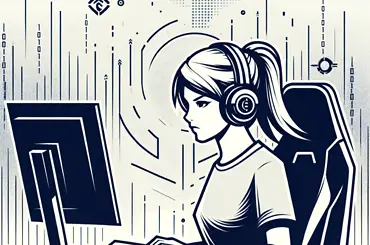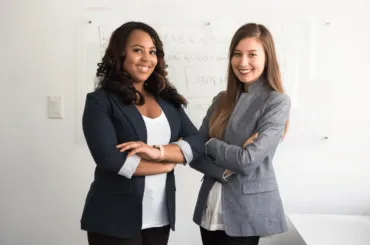Education is more than just a fundamental right; it’s a powerful tool that helps individuals shape their future. When it comes to women, education plays an even more significant role. It not only allows them to gain skills and knowledge but also empowers them to lead fulfilling lives, contributing positively to society and the global economy.
The importance of women’s education cannot be overstated. It is the cornerstone of gender equality and plays a fundamental role in reducing poverty and promoting health, peace, and democracy.
It is a key driver of economic development and social progress. When women are educated, they are more likely to participate in decision-making processes, both within their homes and in the public sphere. They are also less likely to become victims of violence and more likely to raise healthier and more educated children.
Despite the undeniable benefits, millions of women across the globe still lack access to quality education. This is due to various societal, economic, and cultural barriers. However, one often overlooked barrier is the lack of academic assistance, which can make a significant difference in their educational journey. This is where the concept of ‘help paper‘ comes in.
Stories of Empowered Women Through Education
Through the ages, countless women have broken barriers, challenged stereotypes, and paved the way for others through the power of education. Their stories serve as powerful reminders of how education can transform lives and societies.
Take Malala Yousafzai, for example. Despite being shot by the Taliban for advocating for girls’ education in Pakistan, she continued her fight, becoming the youngest-ever Nobel laureate.
Her story is a testament to the transformative power of education. Her courage and determination to secure the right to education for girls in areas where it is often denied is truly inspirational.
There’s also the story of Michelle Obama, the former First Lady of the United States, who made education her priority. Through initiatives like the “Let Girls Learn” program, she aimed to ensure girls around the world have access to quality education. As a result of her efforts, millions of girls who would otherwise be denied the opportunity to learn are now in school and thriving.
These stories underscore the transformative power of education. However, they also highlight the importance of providing academic assistance or ‘help with paper’ to girls and women, enabling them to overcome barriers and achieve their educational goals.
Access to Academic Assistance for Women
Academic assistance or ‘help with paper’ refers to various forms of support provided to students to help them succeed in their academic endeavors. This can include tutoring, mentoring, providing resources for research, and assistance with paper writing, among others.
Access to academic assistance is critical for women, particularly those from disadvantaged backgrounds. Many women, especially in developing countries, have to juggle multiple responsibilities, including household chores, caregiving, and income-generating activities.
This leaves them with little time for studies. Academic assistance can help them manage their academic workload more effectively, thereby improving their chances of success.
Moreover, academic assistance can also help women overcome other barriers to education. For instance, women who lack confidence in their academic abilities can benefit from personalized guidance and support.
Similarly, those who struggle with certain subjects or concepts can gain clarity and understanding through one-on-one tutoring.
A Brighter Future: Women’s Education and Paper Help
The link between women’s education and ‘help with paper’ is clear. By providing academic assistance to women, we can help them overcome barriers to education, empowering them to achieve their full potential. This, in turn, can lead to numerous benefits, both for the women themselves and for society as a whole.
Educated women are more likely to be economically independent, which can help reduce poverty and inequality. They are also more likely to have healthier and more educated children, which can break the cycle of poverty across generations.
Moreover, women’s education can contribute to social and economic development. Educated women are more likely to participate in the workforce and contribute to economic growth. They are also more likely to engage in civic activities and promote peace and democracy.
In conclusion, education is a powerful tool for women’s empowerment. However, to fully harness its power, we must ensure that all women, regardless of their background or circumstances, have access to quality education and academic assistance. By doing so, we can help create a brighter, more equal, and more prosperous future for all.
So, let’s commit ourselves to promoting women’s education and providing ‘help with paper’ wherever and whenever possible. Because when we empower women through education, we empower humanity.






